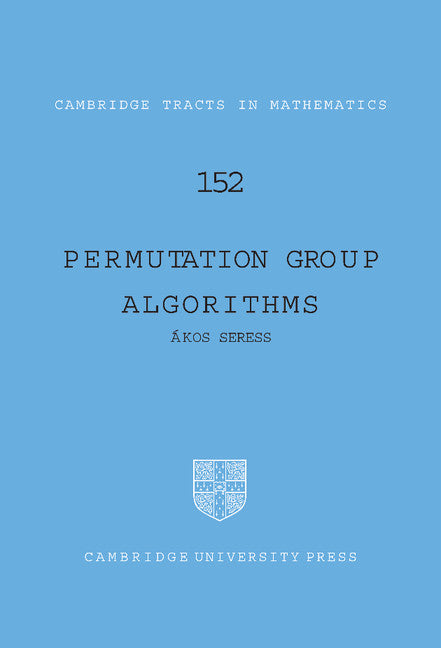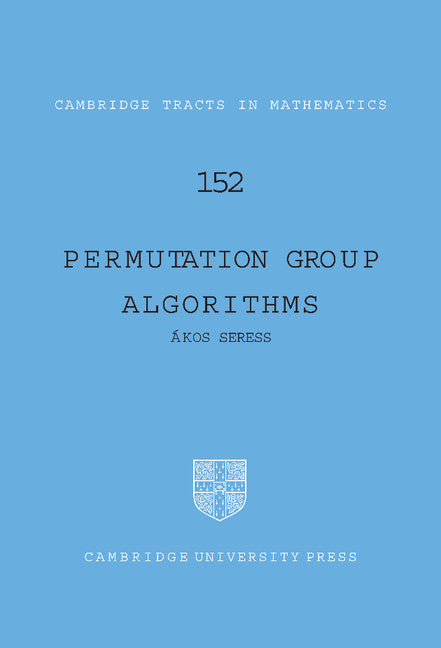Freshly Printed - allow 8 days lead
Couldn't load pickup availability
Permutation Group Algorithms
Theory of permutation group algorithms for graduates and above. Exercises and hints for implementation throughout.
Ákos Seress (Author)
9780521661034, Cambridge University Press
Hardback, published 17 March 2003
274 pages, 30 b/w illus.
23.1 x 15.7 x 2.3 cm, 0.52 kg
'… this monograph by Akos Seress, one of the leaders in the field, is a welcome contribution. … the monograph is welcome not only for giving us an encyclopaedic account of the area, but also for its timeliness. A good author of a good book stamps his or her tastes and expertise firmly on the pages. That is what has happened here. In particular, because it should be of lasting value, it is a very appropriate addition to the Cambridge Tracts.' Peter M. Neumann, The Queen's College, Oxford
Permutation group algorithms are one of the workhorses of symbolic algebra systems computing with groups. They played an indispensable role in the proof of many deep results, including the construction and study of sporadic finite simple groups. This book describes the theory behind permutation group algorithms, including developments based on the classification of finite simple groups. Rigorous complexity estimates, implementation hints, and advanced exercises are included throughout. The central theme is the description of nearly linear time algorithms, which are extremely fast both in terms of asymptotic analysis and of practical running time. A significant part of the permutation group library of the computational group algebra system GAP is based on nearly linear time algorithms. The book fills a significant gap in the symbolic computation literature. It is recommended for everyone interested in using computers in group theory, and is suitable for advanced graduate courses.
1. Introduction
2. Black-box groups
3. Permutation groups: a complexity overview
4. Bases and strong generating sets
5. Further low-level algorithms
6. A library of nearly linear time algorithms
7. Solvable permutation groups
8. Strong generating tests
9. Backtrack methods
10. Large-base groups.
Subject Areas: Mathematical theory of computation [UYA], Algebra [PBF]


